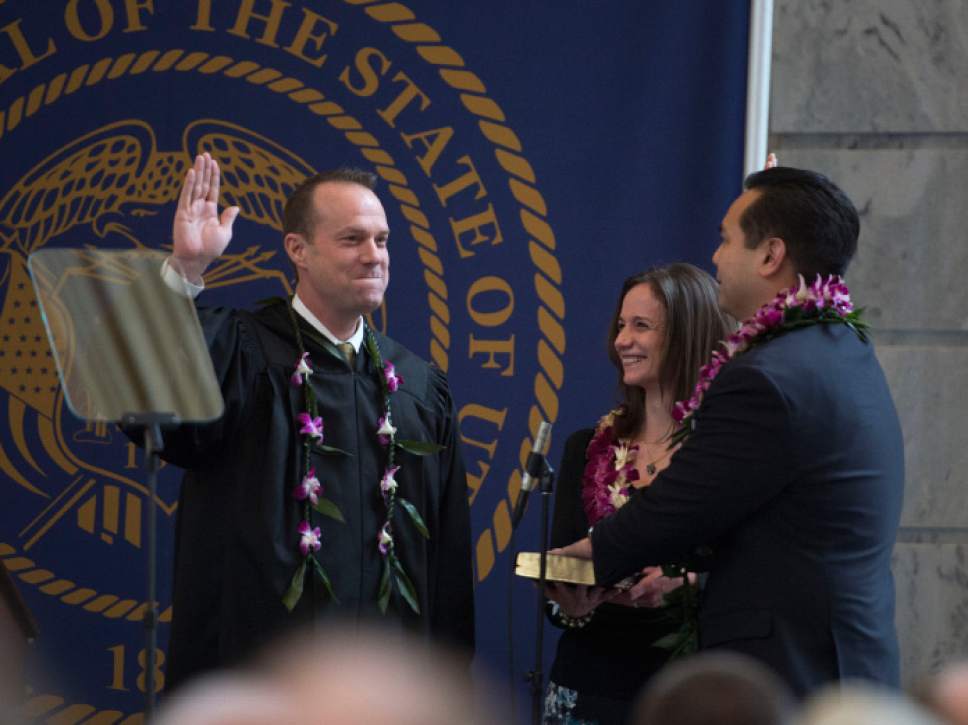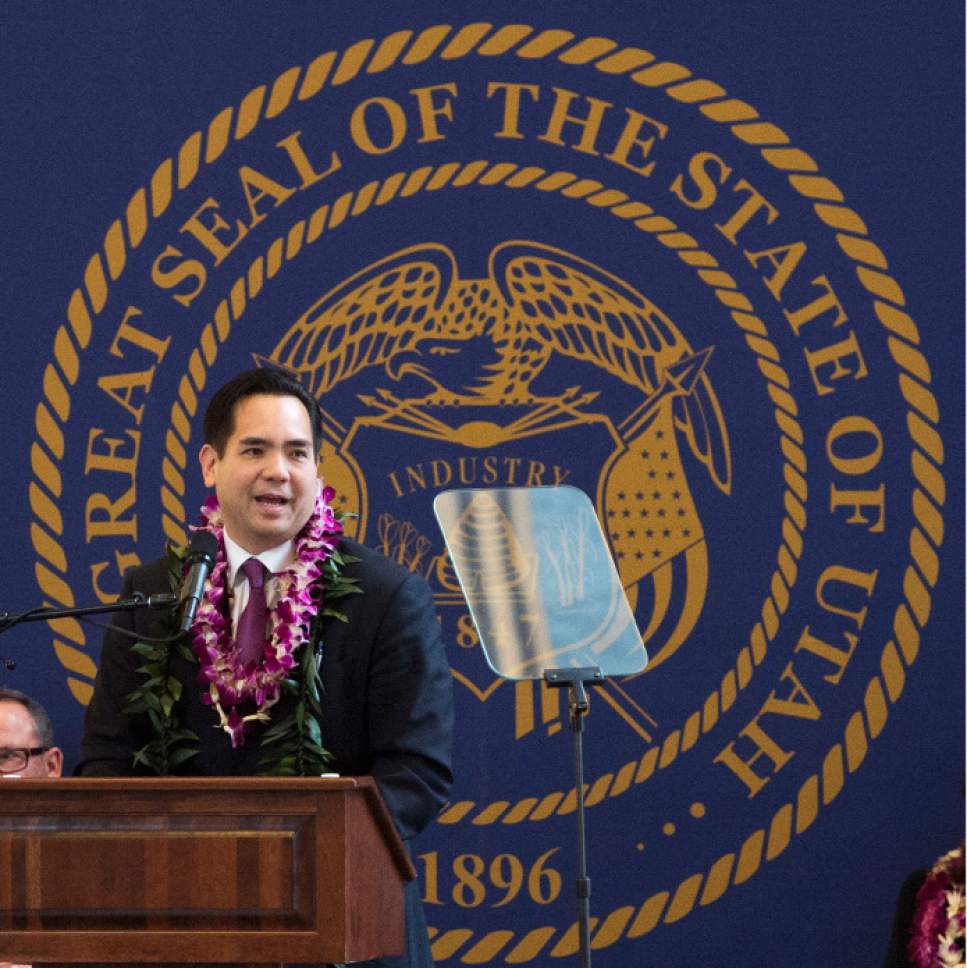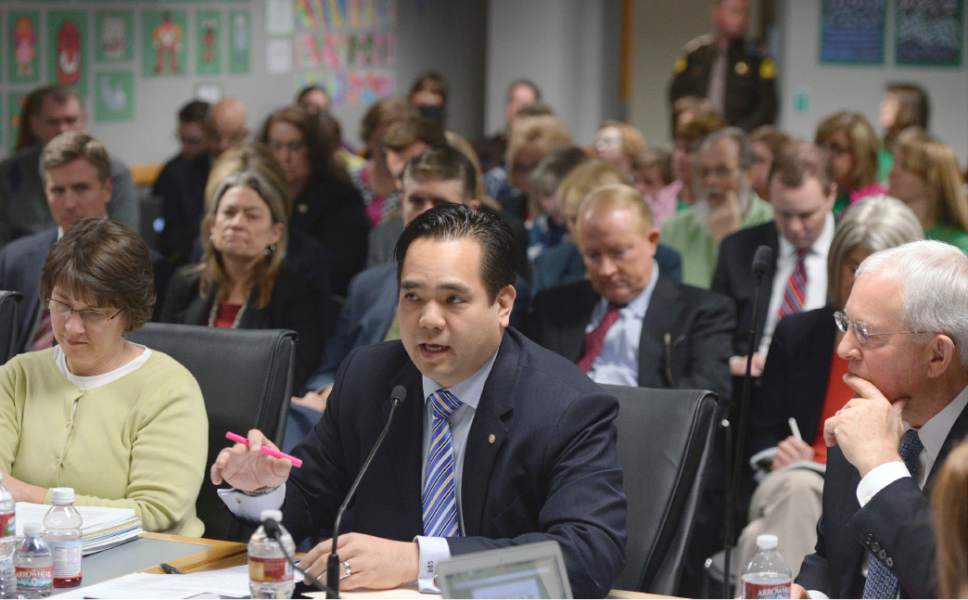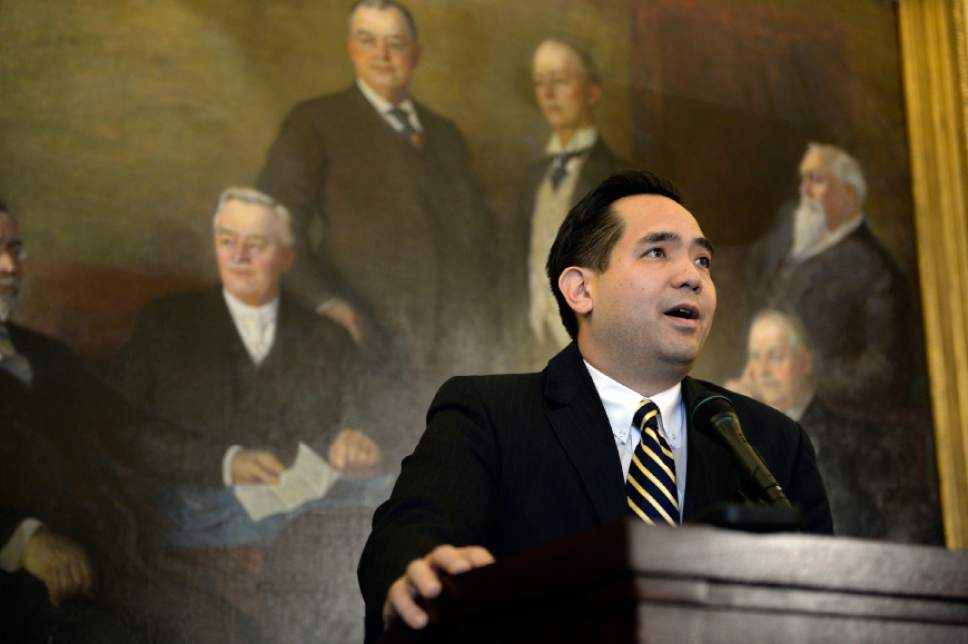This is an archived article that was published on sltrib.com in 2015, and information in the article may be outdated. It is provided only for personal research purposes and may not be reprinted.
The Utah attorney general's office doesn't have adequate policies in place to protect employees who blow the whistle on corruption or misdeeds in the office and still lacks adequate ethics policies and guidelines for employees, according to audits released Tuesday.
Those findings by the legislative auditor general, looking at the performance and budgetary management in the attorney general's office, come more than 18 months after Attorney General Sean Reyes replaced John Swallow, who resigned the post amid a major bribery and corruption scandal.
In addition to inadequate whistleblower and ethics frameworks, the auditors found the office lacked a way to gauge the effectiveness of its attorneys and that a long-standing budgetary practice of letting the office keep some of the money it recovers is overused and may not be entirely legal.
In response to the audit, Reyes said his office appreciates the analysis "as it addresses long-standing issues my administration inherited and has been working tirelessly to correct over the past 18 months."
He said the office is moving toward implementing an "internal affairs" officer who would be independent from management and could field and investigate complaints of malfeasance.
Auditors said the office needs an avenue for whistleblowers to voice concerns about possible wrongdoing, pointing to an investigation by a House committee that was approached by employees in the office who wanted to "share their deep anger and frustration about what occurred during Mr. Swallow's tenure. … They felt powerless to stop the wrongdoing because it came directly from the top."
Reyes said that from the first day he took office on the heels of the scandal and amid major constitutional cases, the office faced areas of neglect, inadequate compensation and funding, a lack of resources, a demoralized workforce and poor technology, "to name just a few challenges."
The office is also implementing evaluation guidelines aimed at providing a better, more consistent picture of employee performance.
One issue auditors raised was a somewhat-complicated budgetary practice that auditors said doesn't comply with state law.
Last year, the office was paid $17 million from various agencies for legal work provided by the attorney general's office. Those dedicated credits become part of the attorney general's budget, but auditors said that kind of budgeting diminishes transparency and accountability.
Auditors also reported that in recent years, the attorney general's office has seen a sharp increase in how much it spends hiring outside lawyers to handle issues. Between 2010 and 2014, the amount paid to outside attorneys has jumped from about $400,000 to more than $2 million. Most of the increase has been to hire attorneys to handle condemnation cases for the Utah Department of Transportation.
The audit reported that salaries for assistant attorneys general are on the low side of the scale and nearly half the lawyers in the office had less than five years experience when they were hired.
Turnover has remained fairly steady, with most of those who leave either retiring or going to work in the private sector.
gehrke@sltrib.com Twitter: @RobertGehrke









